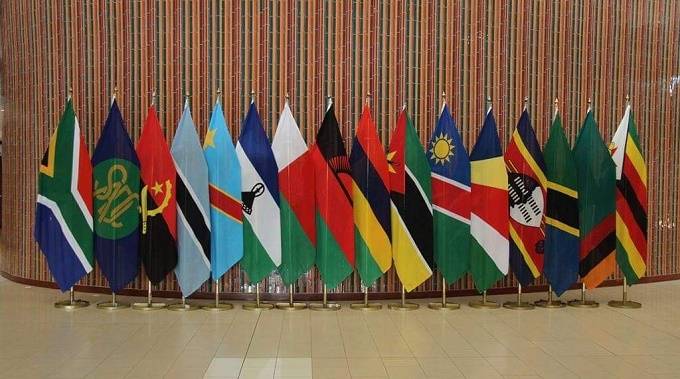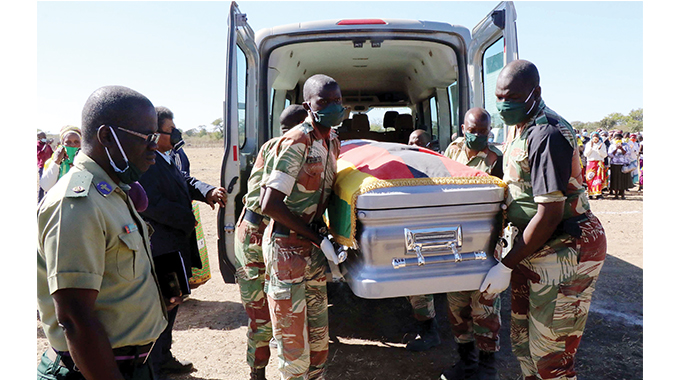COMMENT: Sadc must move swiftly to end insurgency in Mozambique

President Mnangagwa yesterday chaired an extraordinary summit of the Sadc Organ Troika at which the security situation in northern Mozambique was the agenda.
He is the chairperson of the Sadc Organ on Politics, Defence and Security. Other members of the troika who attended the one-day summit in Harare are Zambian President Edgar Lungu, who is the immediate past chair of the organ and incoming chairperson of the organ President Mokgweetsi Masisi of Botswana. Mozambican President Filipe Nyusi attended the summit as well.
The high-level meeting is the first to be held to discuss the deteriorating security situation in northern Mozambique. It came some three years after Islamic militants started beheading civilians, attacking police stations and other facilities in that country’s northern Cabo Delgado Province.
The insurgents, who launched the first attacks in early October 2017, say they want to create an Islamic state in the region. From time to time they snatch territory and hoist the Islamic State flag over them, but government forces routinely step in to chase them away. At least 470 of the militants have been arrested since the conflict started and the government announced last week that 50 of the Islamists had been killed.
To fully arrest that conflict, President Nyusi recently formally sought Sadc’s support, hence the holding of the Harare summit yesterday.
We are disturbed by the emergence of a fresh wave of insecurity in the sister republic, about a year after the end of the long-running Renamo rebellion that was concentrated in the central region of that country.
The Renamo banditry, the first phase of which started in 1975 ended in 1992 but hostilities resumed in 2012. An indefinite truce was agreed in May 2017 and that rebellion formally ended in August last year when President Nyusi and Renamo’s Ossufo Momade signed an agreement.
So just as President Nyusi and Renamo were resolving that conflict in the central region, Islamists were triggering a new one in the north.
Speaking at the start of the summit yesterday, President Mnangagwa expressed worry at the new terrorist activity in Mozambique.
“The modus operandi of the terrorist groups and their networks are intricate and elaborate. Radicalisation and terrorism is a worrying situation for peace, security and development in our region,” he said.
Sadc is generally one of the relatively peaceful of Africa’s regional blocs so this new challenge in Mozambique is a threat to that record.
It is important that President Nyusi has recognised that threat and that his government might be unable to deal with it effectively and fast enough hence his appeal for Sadc assistance. He recognises the wide-ranging impact that the Renamo insurgency caused economically, socially and politically. He does not want that to be replicated through the Islamists.
It is equally important that Sadc has started acting on his formal request for support. We have no doubt that the region will render that assistance. It has done that before in that country during the first phase of the Renamo rebellion from 1975 to 1992; in Angola during Jonas Savimbi’s rebellion from 1975 to 2002 and in the Democratic Republic of Congo when foreign-backed rebels attempted to overthrow the government in the late 1990s.
The peace-loving people of Mozambique and Sadc want peace to be restored in Cabo Delgado. They do not want to live in constant fear of being beaten up or beheaded by the outlaws. They want to work for themselves in a secure atmosphere.
For Zimbabwe, the insecurity in Mozambique brings back memories of the Renamo banditry. Then the insurgents sent about 60 000 Mozambicans into Tongogara and Chambuta refugee camps in Chipinge and Chiredzi. Apart from causing so many of their compatriots to flee their homes, the terrorists also executed multiple attacks on Zimbabwean soil, injuring, killing and displacing hundreds.
We also remember how our government, shortly after Independence, sent troops to assist the Mozambique government to fight against the rebels and defend our country’s access to the sea. Happily, that campaign ended in victory.
We are very clear that the current conflict looks smaller than the Renamo one that was heavily supported by Rhodesians prior to 1980 and apartheid South Africa, and that it is concentrated further north of Mozambique. As such the risk of it spreading here are decidedly remote. That is good for us but insecurity in a sister country is no different from insecurity in our own.
For that reason we expect to see Sadc moving in swiftly to assist President Nyusi and his people defeat the insurgents and bring lasting peace and security to Cabo Delgado.












Comments